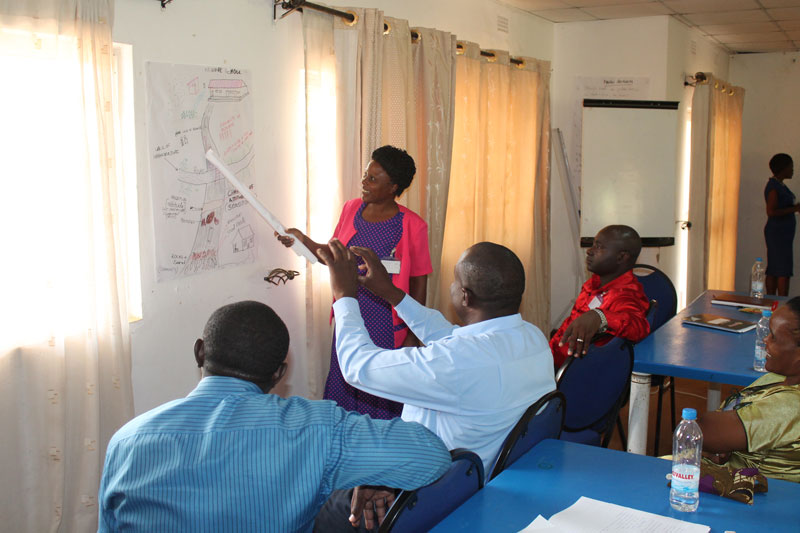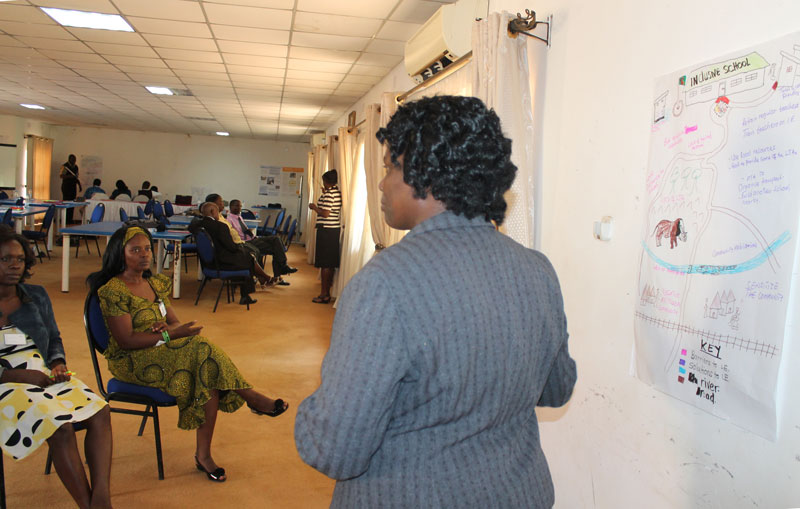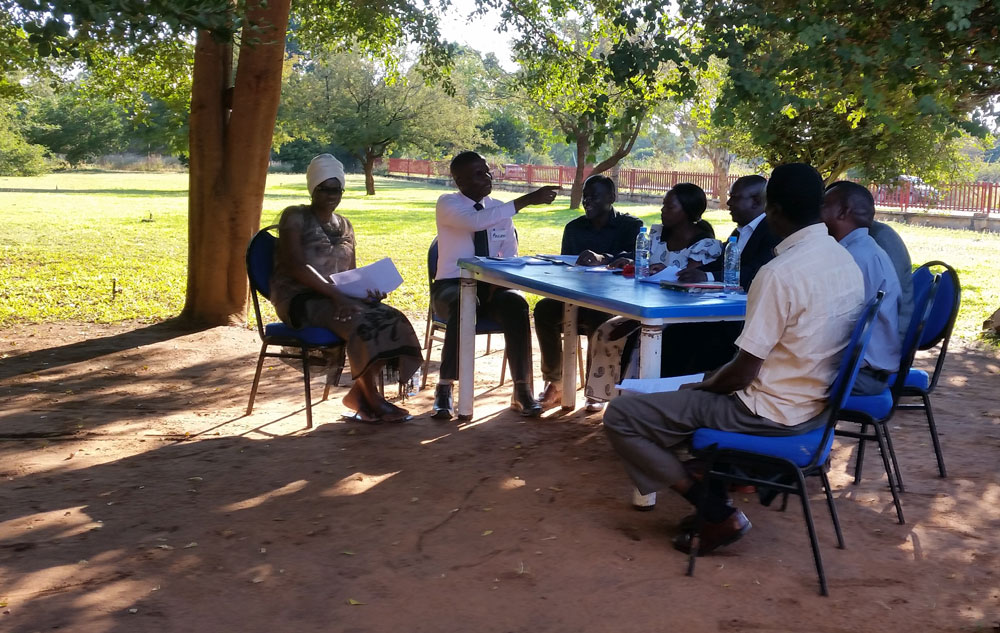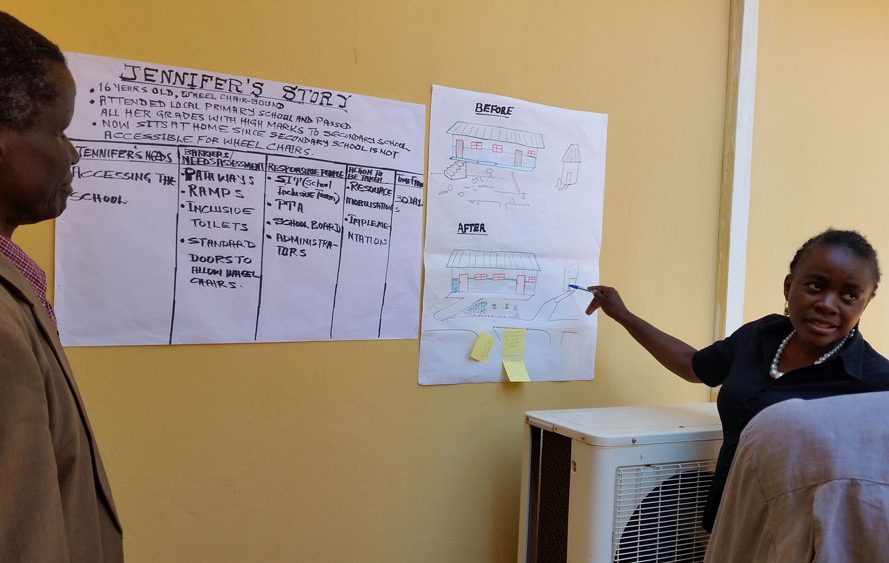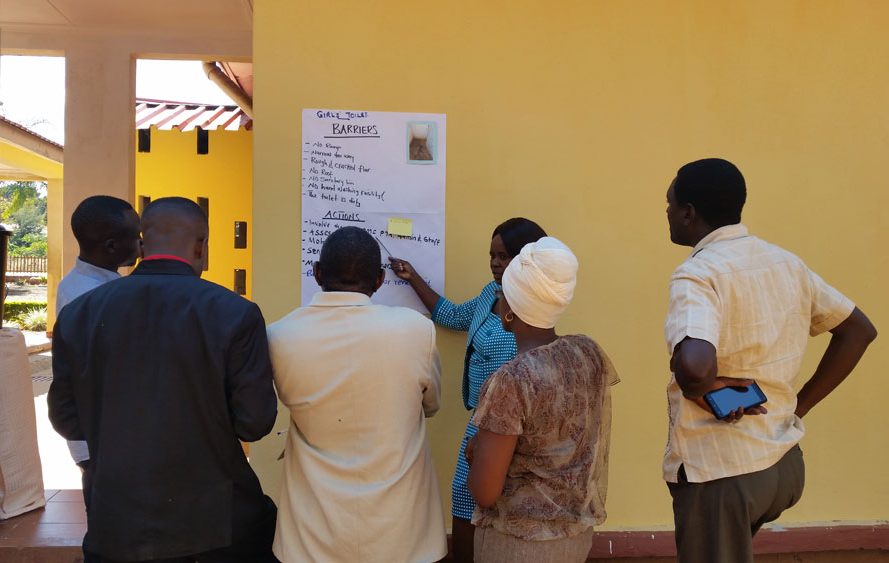6.2. Active learning within the training programme Copy
You can listen to the content of the page by using the audio controls.
During the ToT workshops, Principal Trainers get a chance to participate in and practise facilitating active, learner-centred activities. They do not just passively watch the ‘expert’ lead trainer facilitating everything.
Because the Principal Trainers become skilled in using active learning strategies, they can more effectively show teachers how to use these strategies in the classroom.
Listen to a Principal Trainer explain how one of the teachers he trains got impressive results for all her class, as a result of using active learning approaches.
You can read a transcript of what he says.
Examples of active learning approaches used in the training programme
Here are some videos and photos from ToT workshops in Zambia. They show some of the active learning approaches that Principal Trainers participate in during their training, and which they can later use when training teachers.
1. Movement-based activity followed by discussion
This activity is about trust-building. The activity was designed to help Principal Trainers learn how to train teachers to promote peer mentoring. Peer mentoring can help learners overcome problems such as being bullied, feeling lonely or being prevented from accessing learning.
This video shows Principal Trainers participating in the trust-building activity.:
The next video is part of the Principal Trainers’ discussion about the trust activity.
2. Role play and forum theatre
One of the 11 training modules focuses on supporting learners during education transitions. In this workshop activity, Principal Trainers role play an example of a learner’s non-inclusive transition to a new school. They then use forum theatre techniques to reinforce the learning from the drama activity.
3. Case study analysis and role play
During the workshop on inclusive transition, Principal Trainers work in groups to read and discuss various case studies about vulnerable learners who arrive in school, or leave, mid-year. The Principal Trainers are encouraged to develop local case studies, to make the training modules as relevant as possible for their teachers. This video shows two Principal Trainers performing a role play based on the case study of Mwene (see below). They are acting out a peer mentoring session between Mwene and a fellow learner.
Sample case study that Principal Trainers discuss and develop: Mewne, aged 11
Mwene comes from Kayombo and is member of the Vaka Chiyama Cha Mukwamayi community. He has already attended two other schools and joined your school 6 months ago. Mwene has difficulty reading and writing and his English, the medium of instruction, is underdeveloped. He sits on his own and his attendance is irregular. He rarely does homework and hates to talk in class. If the teacher tries to involve him, he tends to start to miss lessons. Other teachers have said not to worry about it as he will be absent for several weeks soon and maybe not come back as he will attend the Mukanda, an initiation school connected to the Makishi Masquerade ritual of his community. Nobody in the class talks to him except to call him names. One day in class he lashes out at a boy who is teasing him – the school excludes him for the day.
Discuss
- What are your concerns?
- What are Mwene’s needs and the strategies you would use to support these needs?
- How can you and other services/professionals support Mwene’s successful transition?
4. Teamwork activities
Teamwork and collaboration help teachers develop the skills and confidence to promote effective change in their schools. The training modules suggest many activities that promote teamwork. The two photos below show the ‘mountain diagrams’ that Principal Trainers prepared in small groups. These diagrams use words and images to show the goal of inclusive education, the barriers on the path towards achieving it, and strategies for overcoming these barriers. Participants can interpret the ‘mountain’ concept in different ways, so as shown here some draw a tree or a road rather than a mountain.
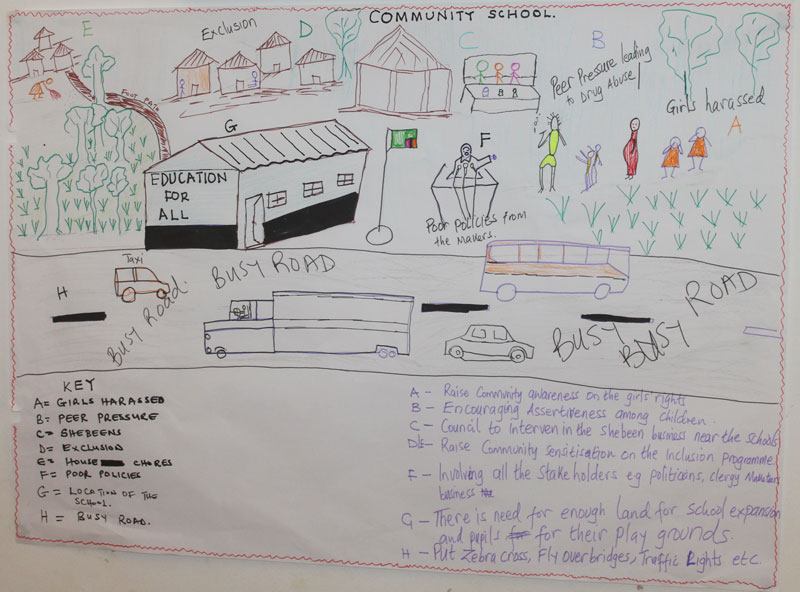
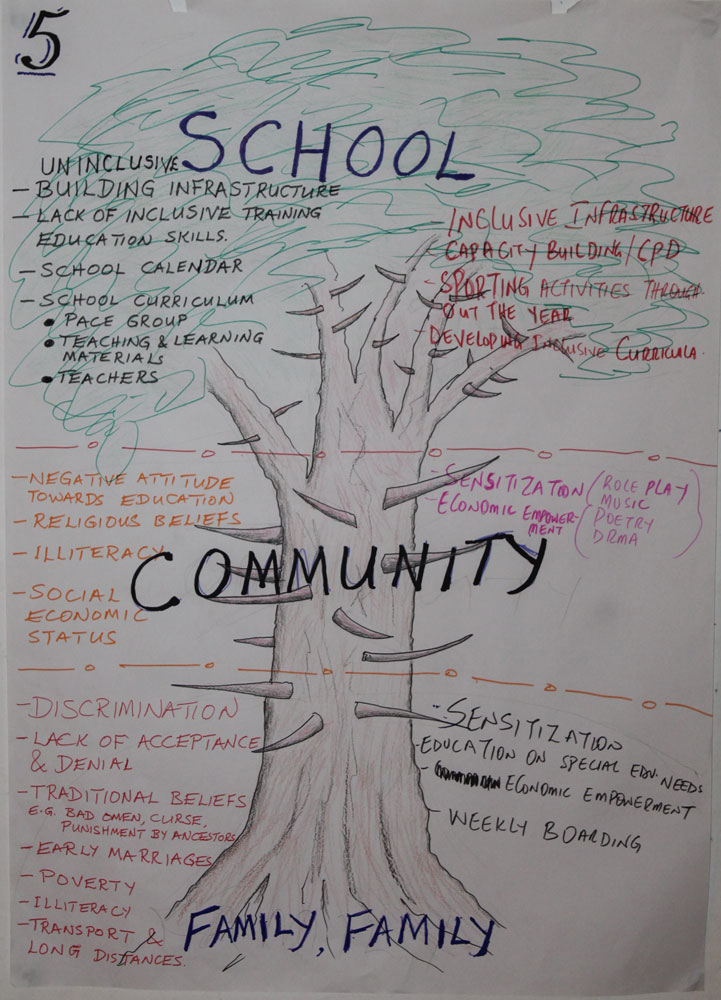
5. Interesting ways to present and share
Participants in the workshops use different techniques for sharing what their small groups have discussed and created – they don’t just do boring plenary presentations. A popular technique is the ‘gallery walk’. One person from each group acts as the spokesperson. They stand next to their group’s presentation or flipchart, ready to explain and answer questions. Each group goes to look at a flipchart (not their own) and discusses it with the spokesperson. New thoughts and ideas are recorded on the flipchart, using sticky notes or extra flipchart paper. After 5-10 minutes they move to the next flipchart, repeating this until all flipcharts have been visited. The two photos below show Principal Trainers sharing their group work using gallery walks.
6. Case study analysis, discussion and sharing
Case studies can help Principal Trainers (and then teachers) to reflect on many different topics. The slideshow below shows trainers discussing case studies about school inclusion teams (SITs). They analysed case studies and came up with suggestions for how the SIT and stakeholders can collaborate to tackle inclusion challenges faced by individual learners or the whole school community. The photos then show the groups presenting their ideas using a ‘gallery walk’.

